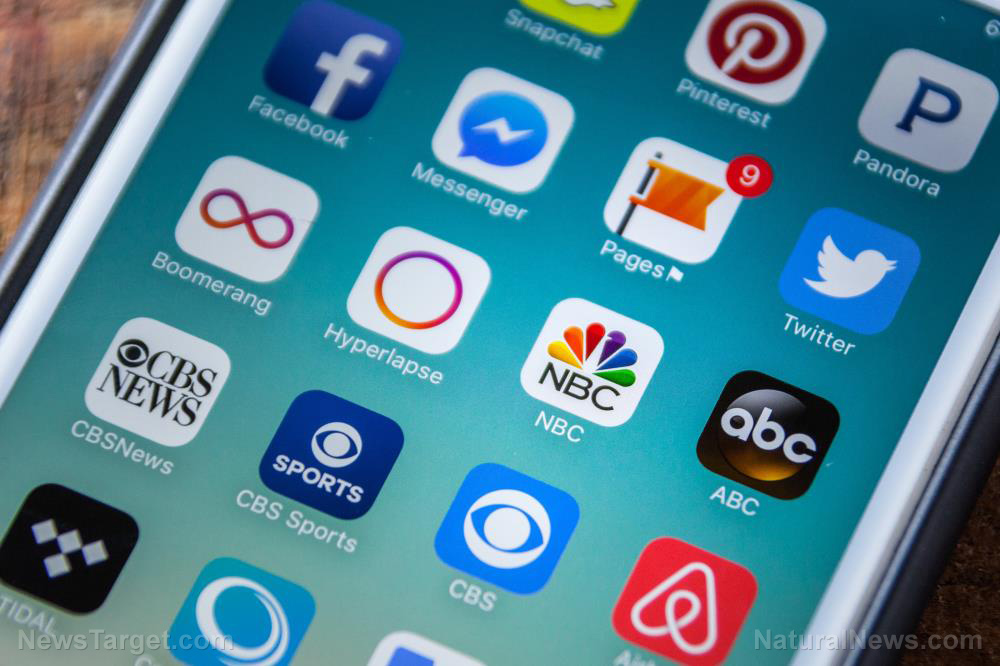Scientist: Google manipulates 25% of the world’s elections
10/03/2018 / By Vicki Batts

Just how far does the power of Google extend? Experts say that the tech behemoth has already reached tyrannical proportions, and is already manipulating the way people think, make purchases and cast votes. Peter Schweizer, president of the Government Accountability Institute and producer of the documentary, The Creepy Line, says that Google is basically “Big Brother” come to life — but their tactics are far less overt.
Indeed, Google and other tech companies conduct their unsavory operations behind closed doors and under a cloak of ambiguity. Vague and arbitrarily enforced “community guidelines” are the new oppression — but as privately held companies, users have little to no legal recourse. They can either play ball, or get banned. These “companies” have granted themselves enormous power, including the power to take away freedom.
The dark side of search engines
“You don’t see it, it’s not visible – you are not seeing police coming into your house. But they are, in a real way, like Big Brother, sifting and determining what you should see and what you shouldn’t see,” Schweiser stated to WND.
“The problem is you can see storm troopers – you can see the fist of government trying to infringe on your rights – you can’t see what Google is doing because its hidden and we don’t know what we don’t know,” he contended further.
As Schweizer argues, while it is true that Google can do a lot of amazing things for people, the company can (and is) doing just as much to them.
“They want to give us advertising and steer our search engines in a certain direction – we all like that because we get good search results. But the problem is they take that information and they weaponize it – they use it against us to manipulate us. That’s the real problem – this ability they have to steer and influence what we are thinking and how we are looking at issues because they determine what information is actually put in front of us,” he cautions.
Robert Epstein, a senior research psychologist at the American Institute for Behavioral Research and Technology and a Harvard psychologist, has dedicated the past five years to researching and investigating online manipulation, surveillance and censorship. His research is a cornerstone of The Creepy Line.
“All three of these are connected to each other: If you are censoring information and people don’t see it, you are manipulating them – you are manipulating their thinking,” he explained. Epstein says surveillance makes manipulation even easier to accomplish, “because the more you know about someone, the easier it is to manipulate him or her.” For example, censoring conservative points of view prevents people from seeing valid criticisms of liberal talking points.
The “mountains of information” that companies like Google manage to accrue are especially dangerous — that data is ultimately used “to manipulate us and to make decisions about us without us even understanding that these decisions are being made,” as Epstein explains.
The researcher says that people are unaware of how deeply Google’s surveillance efforts and algorithms are being used to make decisions for them, whether its getting a new credit card or a new job.
Autonomy is at risk
Epstein says Google’s access to the public’s personal and private information puts the entire electoral process at risk — but worse than that, the very state of personal autonomy as we know it is under attack. Epstein, a Clinton supporter, says that his research demonstrated a clear pro-Hilary bias in Google’s search engine results during the 2016 election. But even he finds this appalling, as manipulating search results in this way totally undermines democracy. Epstein isn’t the first researcher to take note of Google’s data manipulation, either — a 2015 study found that the company was guilty of such actions, as well.
According to Epstein,”At the moment, whether people know it or not, democracy in the United States is little more than an illusion.” He adds that Google’s manipulation can easily shift upwards of 20 percent of votes. Over time, for a big election, this kind of shift could easily turn into two or three million votes — with no one ever realizing they’d been tricked into voting a certain way by their favorite search engine. Learn more about Google at Tyranny.news.
Sources for this article include:
Tagged Under: authoritarian, autonomy, Big Brother, Big Tech, Censorship, computing, corruption, data manipulation, deception, democracy, elections, Glitch, Google, information control, information manipulation, Liberty, manipulation, personal data, political bias, privacy watch, search engines, surveillance, technocrats, thought control, thought crime, thought suppression, totalitarian tech, totalitarianism, Tyranny



















